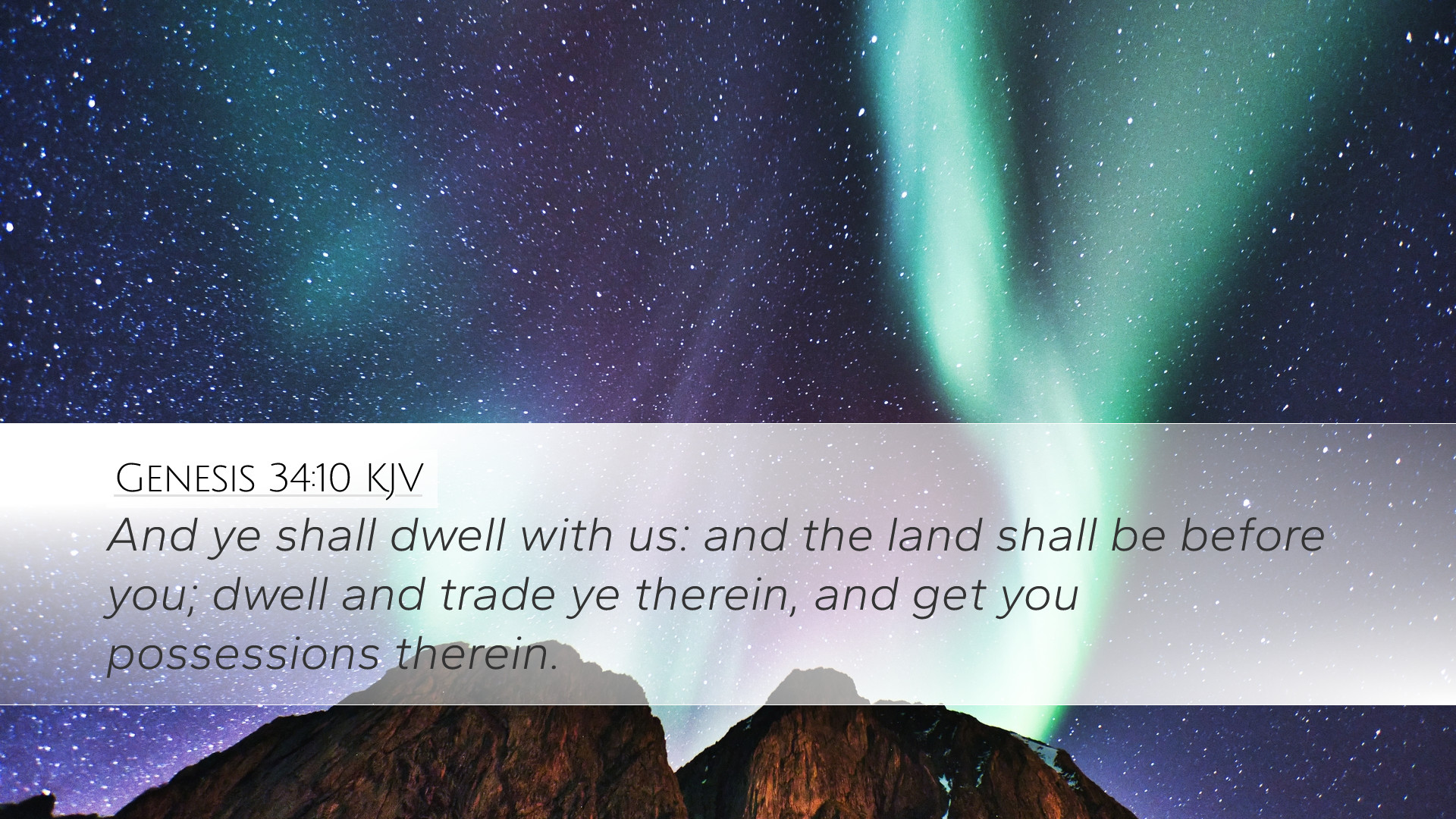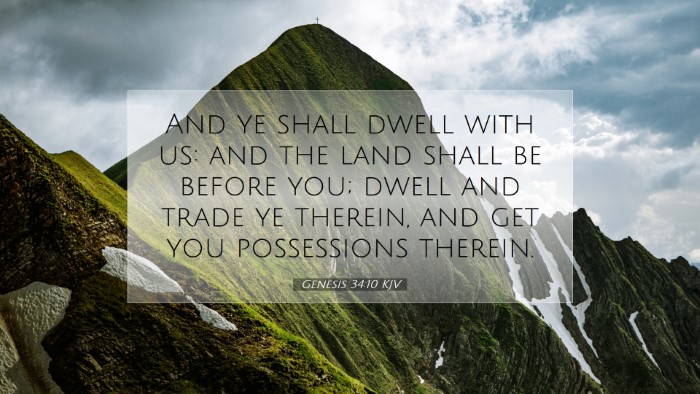Commentary on Genesis 34:10
Verse Overview: Genesis 34:10 states, "And you shall dwell with us, and the land shall be before you; dwell and trade in it, and acquire possessions for yourself in it." This verse follows the tragic account of the defilement of Dinah and the subsequent actions of her brothers. Here, Shechem proposes a marriage alliance with Jacob's family, revealing both his desire for Dinah and the complexities of the situation that unfolds.
Contextual Analysis
Historical Context: The events in Genesis 34 occur against the backdrop of ancient Near Eastern culture, where alliances through marriage were common, and the well-being of women was often tied to family honor. The actions of Shechem and Dinah's brothers highlight the tensions between different tribes and their cultural values.
Cultural Significance: In the context of Shechem's proposal, we see the importance of land rights and familial ties in these ancient societies. The offer to "dwell and trade" signifies a potential integration that would alter inter-tribal relationships and economic systems.
Theological Insights
The events surrounding Genesis 34:10 provide profound insights into human nature and the moral dilemmas faced by God’s people. The contrast between Shechem’s desire to forge an alliance and the violent response of Dinah's brothers leads to reflections on justice, honor, and reconciliation.
Shechem's Proposal and Its Implications
Shechem's Intent: While Shechem approaches Jacob's family with seemingly good intentions, the brutal act towards Dinah casts a shadow over his offer. The suggestion to "dwell and trade" is tainted by the previous act of defilement, prompting a discussion about the nature of repentance and the true motives behind such alliances. As Matthew Henry notes, Shechem's actions were both selfish and misguided, reflecting a broader theme of sin leading to conflict.
The Response of Jacob's Family
Brothers' Rage: Dinah's brothers' response to Shechem's proposition illustrates the fierce protective instincts of their family. Albert Barnes explains that their anger was a natural human reaction to a grievous wrong. The complexity arises as this protective rage leads to cunning deception and violent retribution, raising questions about the righteous vs. the unrighteous use of force.
Lessons on Honor and Justice
Moral Dilemmas: The narrative compels readers to grapple with the tension between justice and vengeance. Adam Clarke emphasizes how the justice portrayed in this chapter diverges from God’s ultimate standards. The actions taken by Dinah's brothers, though aiming to protect family honor, resulted in grave consequences and further conflict. This illustrates the scriptural principle that vengeance belongs to God, and human attempts at "justice" often lead to greater injustice.
Practical Applications for Faith Communities
Discussion on Conflict Resolution: Genesis 34:10 encourages modern faith communities to consider how to respond to grievances and injustices. The chapter reveals the potential pitfalls of acting out of anger and the importance of seeking peaceful resolutions rather than revenge.
Marital Relationships: Shechem's proposal suggests a model for understanding marriage as a covenant and an alliance that involves much more than mere personal desire. The exploration of interpersonal relationships and their ethical implications is vital for developing teachings on marriage in contemporary churches.
Conclusion
In conclusion, Genesis 34:10 serves as a powerful reminder of the intricacies of human relationships and the impacts of sin. It provides a rich ground for discussion on justice, the consequences of unchecked passions, and the importance of upholding God's standards in our relationships. As we engage with this text, let us seek wisdom and discernment in our dealings with one another, fostering peace instead of conflict.


